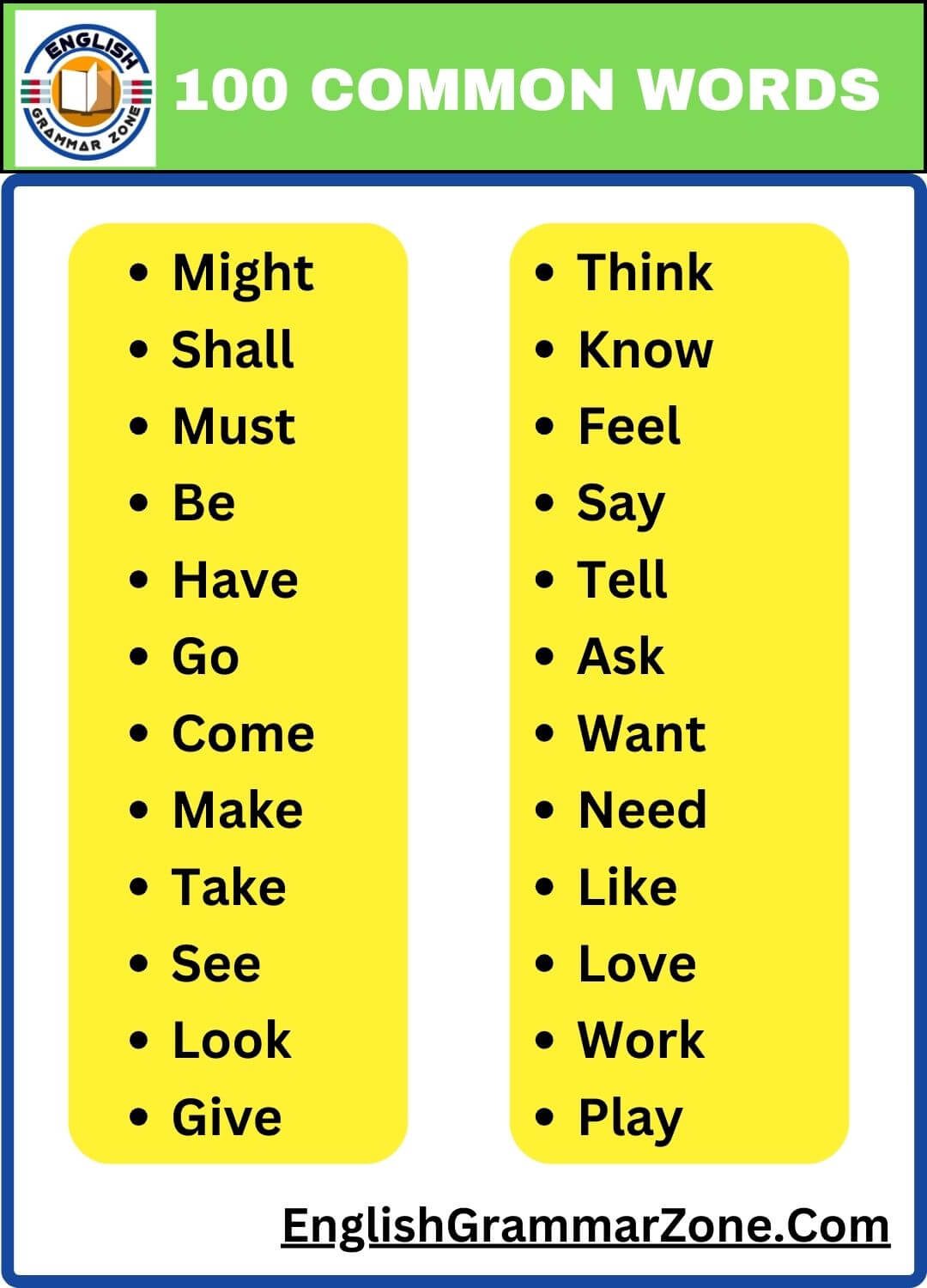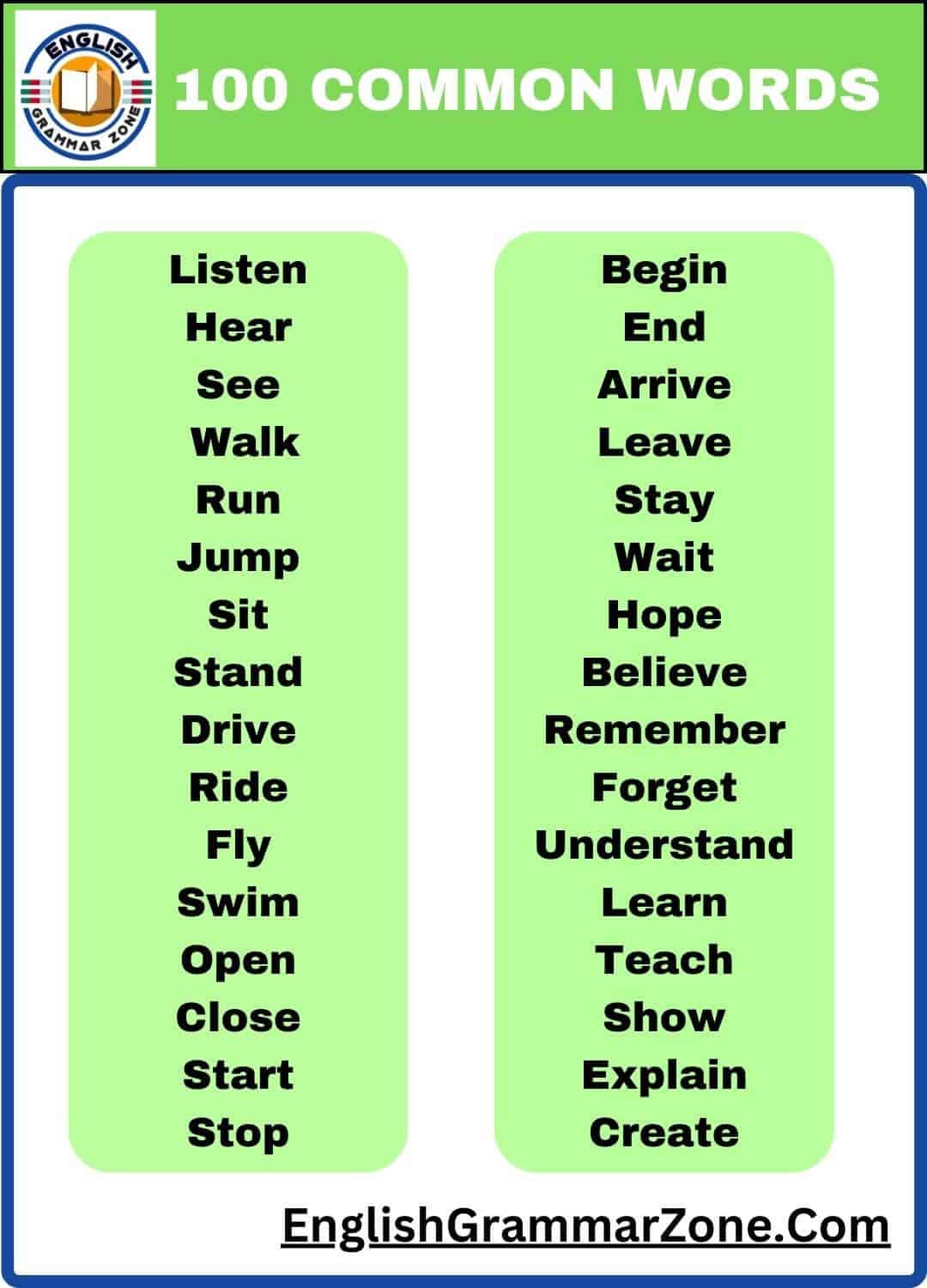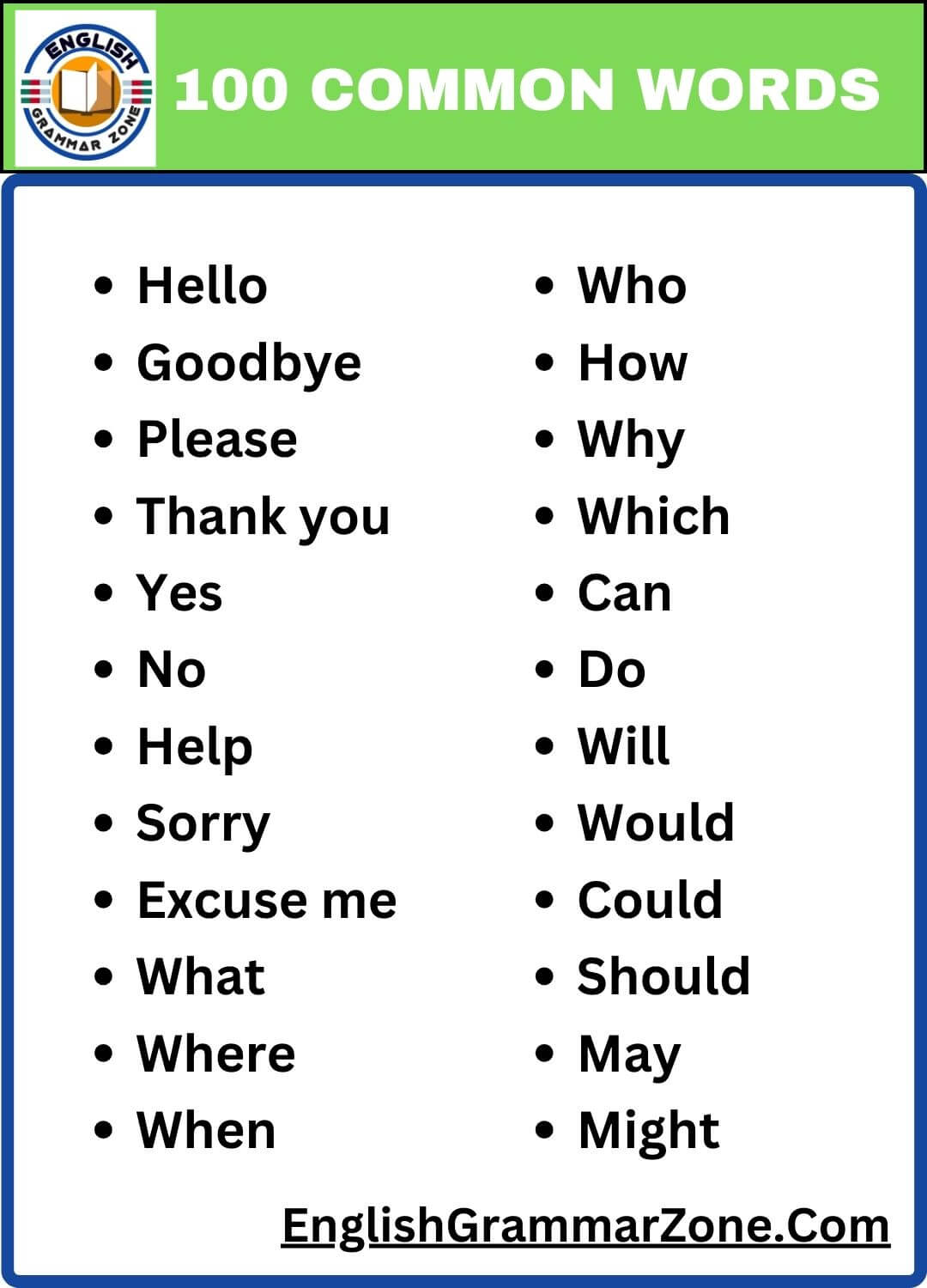Expanding your vocabulary is one of the most important steps in improving your communication skills. Whether you are a student, a professional, or someone learning English as a second language, having a solid foundation of 100 essential words can make a huge difference. These words are commonly used in daily conversations, writing, and even professional communication. By learning and practicing these 100 essential words, you can express yourself more effectively and understand others with ease.
In this guide, we’ll explore the meanings, uses, and examples of these words to help you grasp their importance. Additionally, we’ve answered some frequently asked questions to make your learning experience even smoother. Let’s dive in!
100 Common words
- Hello
- Goodbye
- Please
- Thank you
- Yes
- No
- Help
- Sorry
- Excuse me
- What
- Where
- When
- Who
- How
- Why
- Which
- Can
- Do
- Will
- Would
- Could
- Should
- May
- Might
- Shall
- Must
- Be
- Have
- Go
- Come
- Make
- Take
- See
- Look
- Give
- Find
- Think
- Know
- Feel
- Say
- Tell
- Ask
- Want
- Need
- Like
- Love
- Work
- Play
- Use
- Buy
- Pay
- Eat
- Drink
- Live
- Die
- Sleep
- Wake
- Read
- Write
- Speak
- Listen
- Hear
- See
- Watch
- Walk
- Run
- Jump
- Sit
- Stand
- Drive
- Ride
- Fly
- Swim
- Open
- Close
- Start
- Stop
- Begin
- End
- Arrive
- Leave
- Stay
- Wait
- Hope
- Believe
- Remember
- Forget
- Understand
- Learn
- Teach
- Show
- Explain
- Create
- Build
- Grow
- Change
- Improve
- Move
- Win
- Lose



Frequently Asked Questions About 100 Essential Words
What Are the 100 Essential Words?
The 100 essential words are a curated list of commonly used words that are crucial for effective communication. These words include verbs, adjectives, nouns, and conjunctions that you are likely to encounter in everyday life. For example, words like important, improve, communicate, and understand are part of this group. Learning these words can boost your confidence in speaking and writing.
Why Are These Words Considered Essential?
These words are considered essential because they appear frequently in daily interactions, academic texts, and professional settings. They form the foundation of most sentences, making them vital for understanding and expressing ideas clearly. For instance, mastering words like create, analyze, and explain can enhance your ability to convey thoughts in various contexts.
How Can I Learn the 100 Essential Words Effectively?
Here are some tips for learning the 100 essential words effectively:
- Flashcards: Create flashcards with the word on one side and its meaning and an example sentence on the other.
- Daily Practice: Learn 5-10 words every day and revise them regularly.
- Use in Sentences: Write simple sentences using each word to reinforce your memory.
- Interactive Apps: Use language-learning apps like Duolingo or Quizlet to practice these words interactively.
- Read and Listen: Read books, articles, or listen to podcasts where these words are commonly used.
How Long Does It Take to Master the 100 Essential Words?
The time it takes to master these words depends on your learning pace and dedication. Typically, if you dedicate 15-20 minutes a day to practicing, you can grasp these words within a month. However, consistent use in speaking and writing will solidify your understanding more quickly.
Can These Words Improve My Writing Skills?
Absolutely! The 100 essential words can significantly enhance your writing by making it more precise and impactful. For example, replacing vague words with specific ones like describe instead of tell or evaluate instead of look at can elevate the quality of your writing.
Are These Words Useful for Non-Native English Speakers?
Yes, non-native English speakers can greatly benefit from learning these 100 essential words. They provide a solid base for understanding and constructing sentences, which is particularly helpful for those preparing for exams like IELTS or TOEFL.
Where Can I Find the Complete List of the 100 Essential Words?
The complete list of 100 essential words is often available in language-learning books, online courses, or vocabulary-building apps. Many educational websites also provide downloadable lists with examples and exercises to help learners practice.
By focusing on these 100 essential words, you can lay a strong foundation for better communication, improved writing, and enhanced confidence in English. Start incorporating these words into your daily routine and watch your language skills soar!

